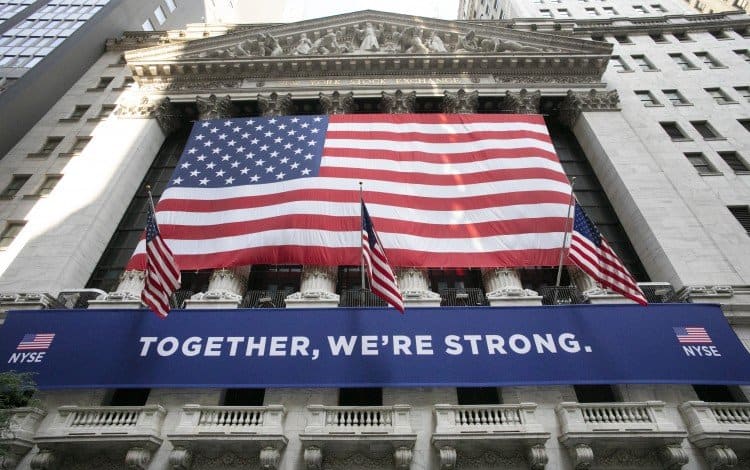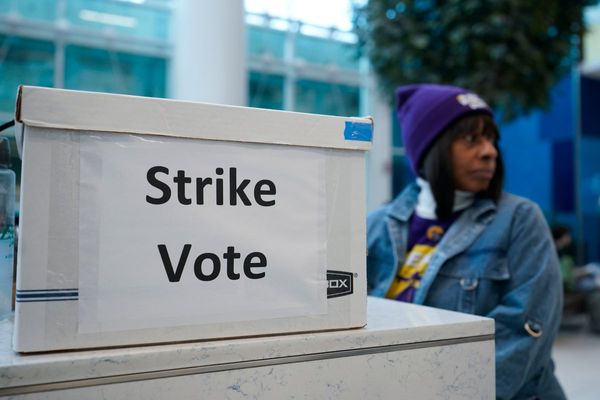
Flying, even at the best of times, can be a stressful experience: long airport lines, unruly passengers, $5 peanuts and a Kilimanjaro-like escalator climb to collect your bags and hail one of the few taxis not disrupted by Uber's relentless expansion.
Veteran travelers differ on how to avoid these pitfalls, but nearly all agree on at least one in-flight tactic to ease the jangling nerves: When turbulence hits, just check out the crew. If they're not worried, you don't need to be, either.
Don't Miss: Fed Chair Powell Goes Quiet as Bond Markets See Recession, Rate Cuts
U.S. debt, it seems, is not only soaring in flight -- the nonpartisan scorekeepers at the Congressional Budget Office said Wednesday that we'll all be $19 trillion deeper in hock over the next 10 years -- but is also only months away from flying into a self-constructed air pocket known as the 'Debt Ceiling'.
The extra borrowing, linked to both a host of Democratic initiatives spearheaded by President Joe Biden as well as legacy tax and spending plans approved by Republican lawmakers under Donald Trump, has already lifted U.S. debt well past the congressionally mandated $31.4 trillion debt limit.
That's forced officials at the U.S. Treasury to tinker with the books (otherwise known as "extraordinary measures") to keep the world's biggest economy from default.
The CBO said, however, that this sleight-of-hand can last only until about July, or maybe September. By that time, if the Debt Ceiling (upper case letters!) isn't lifted or suspended, "the government would be unable to pay its obligations".
“As a result, the government would have to delay making payments for some activities, default on its debt obligations or both,” said CBO director Phillip Swagel.
Turbulence indeed.
Bond Market as Cabin Crew
So, who should be looking at -- or listening to, as the case may be -- the great 787 Dreamliner that is the U.S. economy as it rattles and hums from the disjointed political jet streams?
The bond market. And they're not worried. At all.
Bond investors buy U.S. debt, fund budget shortfalls and effectively enable lawmakers to justify their tax-and-spend ambitions in a political vacuum. They do this by both purchasing Treasury bonds and dutifully allowing them to roll over into new debt obligations -- as opposed to cashing out -- on virtually a daily basis.
U.S. debt, be it in the form of short-term Treasury bills or 30-year government bonds, act as an effective proxy for global interest rates. In other words, they're the de-facto "price of money."
That means that even as politicians bicker over who's responsible for irresponsible budgets -- you, with your corporate tax cuts! No, you with your pandemic-era largesse! -- bond investors keep scooping up newly minted debt.
Last week, in fact, the U.S. added a fresh $35 billion to that heap -- the equivalent of an indulgent Starbucks latte to a stretched household budget -- in the form of new 10-year Treasury bonds.
Amid the Washington chorus of dire warnings on probity, duty and leaving a crippling legacy of debt to our children (won't someone think of the children?), investors responded by asking to buy nearly triple the amount of bonds offered for sale.
Foreign buyers, in fact, took down around 79.5% of the entire sale, compared with around 66% in January (when debt-ceiling talk was little more than a whisper) and the strongest uptake in more than two decades.
Bond yields -- another way of benchmarking the government's borrowing costs -- are simply not reflecting any sense of concern that the government won't pay its bills.
Yes, yields are rising, but that's almost exclusively linked to the Federal Reserve's interest rate hikes, which act as a natural lift for bond yields.
'Something Must Be Done'; No One Will Say What
The truth is stark: Investors might not be ecstatic about the fact that U.S. debt will essentially match economic output next year, but there are few alternatives in a world where the next best alternatives -- China and Europe -- are immersed in their own political and economic challenges.
Put simply, there is no alternative.
"It’s been some time since 2011 when extreme political brinkmanship led Standard & Poor’s to downgrade US debt from its triple-A rating, but it’s not impossible for history to repeat itself," said Daniel Berkowitz, investment director for investment manager Prudent Management Associates.
"Our base-case expectation is that politicians ultimately reach a compromise given the widely understood importance of Treasury bonds to the global financial system," he added.
They may also dislike the fact that while lawmakers on both sides of the aisle insist that "something must be done," no one is terribly specific as to what that "something" might be.
Senate Minority Leader Mitch McConnell (R-Kentucky), while backing his ally, House Speaker Kevin McCarthy (R-California), on the need for spending cuts, remains willing to tell anyone who'll listen that the GOP isn't going to carve into Social Security or Medicare.
President Biden, along with Senate Majority Leader Chuck Schumer (D-New York), won't even entertain a spending-cut debate until the debt-ceiling anvil is dragged from the cliff edge, while floating nonstarter ideas such as a billionaire's tax or a levy on stock buybacks.
The U.S. Has No Reason to Default. And It Won't.
"Regrettably, the upcoming debt-ceiling confrontation is not likely to be resolved behind closed doors, but rather is destined for a full public spectacle," said Berkowitz. "Given the current power-sharing arrangement in Congress, these ideas almost certainly won’t become reality." said.
Furthermore, while politicians and commentators fret over the idea of default, fewer still will address the central plank of U.S. debt exceptionalism that is currency sovereignty.
The U.S. prints its own money (no one else can) and thus, absent some technical rules prohibiting the Treasury from making timely payments, all bond holders -- and I do mean all of them -- will be made whole. Delays, perhaps, but no sane investor thinks his or her tab won't eventually be paid by Uncle Sam.
The U.S. has no reason to default. And it won't.
The people that have the most to lose -- bond investors -- are telling us so.







